We are Single Moms & We Are Proud of How We Raised Our Daughters
From battling depression, gaining confidence from their daughters to leaving a deeply abusive marriage, these moms ensure they lived life on their terms.
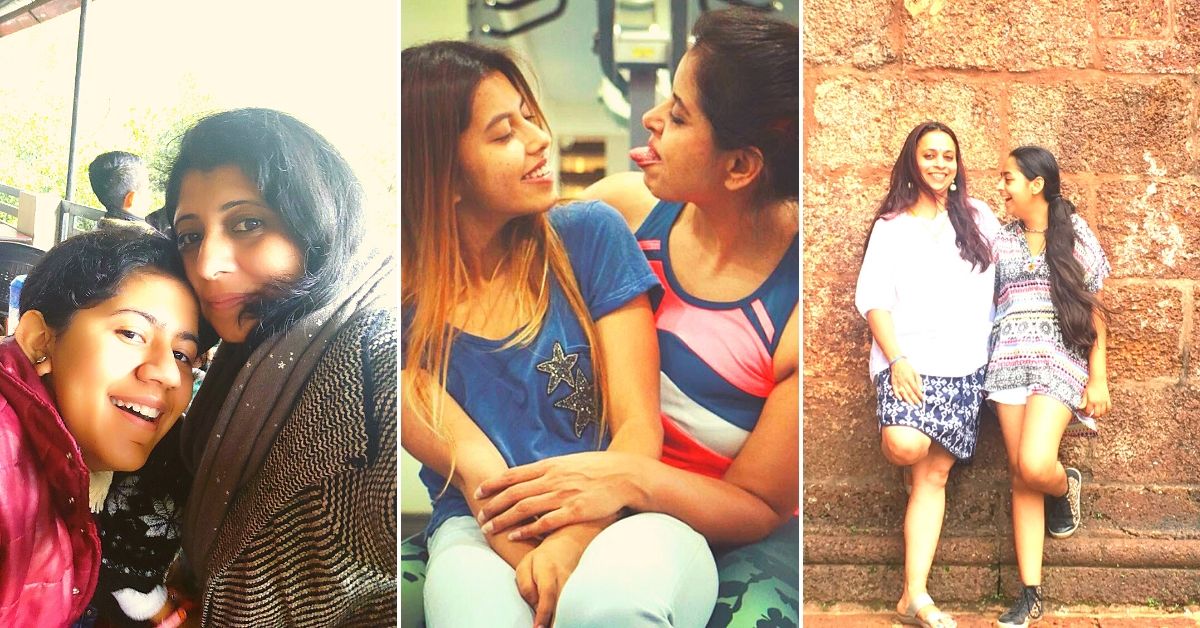
With The Positive Collective, The Better India’s COVID-19 coverage is available to regional language publications for free. Write to [email protected] for more details.
Reading heartwarming accounts in the days leading upto Mother’s Day earlier this month compelled me to think about my aunt.
A homemaker, she was left to raise two teenage sons after her husband passed away two decades ago. Although equipped with a college degree, she hadn’t worked in a very long time and only had her late husband’s pension to take care of her sons. Growing up, I would hear stories from my mother, her younger sister, about my aunt’s struggles and the great sacrifices she made for her sons.
Every summer I was in Leh, I would spend most of my time living with her. Although she barely spoke about her struggles, I saw a woman who had sacrificed her comforts to pay for her children’s education in Delhi. How did she accomplish this? By converting her home into a hotel in partnership with a businessman and carved out a small living quarter for herself and her two boys.
Despite the sneers, judgement for every mistake her sons would make as young people and callous exhibitions of ignorance from the rest of society, at no point did I see bitterness in her heart. Instead, she focussed on what was before her. She was determined to ensure her sons grew up right and today both are working professionals doing well for themselves.
So, when Mother’s Day came around, I didn’t have a heartwarming readymade story to share, but what I did was speak to three single mothers over a week to understand their journey into single motherhood. What I couldn’t ask my aunt, I asked them. Whether it was about the difficulties, challenges or the joys of raising a child on their own, I wanted to understand their experiences.
Challenges of Single Motherhood
Pooja Priyamvada: I see myself more as a co-learner, a facilitator to my daughter’s existence
An award-winning blogger, professional translator and social media consultant in her early 40s, Pooja got divorced in 2018. The journey of raising her now 11-year-old daughter has been both difficult and rewarding.
She suffers from a combination of high functioning depression and Fibromyalgia. This muscular-skeletal disorder has a lot of varied symptoms for different survivors, including muscular pain, bone degeneration and fibro fog, which can affect your ability to think and shatter your energy levels, leaving you with extreme fatigue. Both conditions intersect at times, and that makes normal functioning very difficult. Moreover, as the sole caregiver at home, she also has to look after her ageing mother.
“The process of raising my daughter Priyamvada all alone has been difficult, but rewarding as well. In her early years, she did not understand my condition or what I was going through. But since there was no one else at home, she had to grow up faster than most and was a default caregiver for me at times. It has also been rewarding because it made her more sensitive to physical disabilities, diversity, mental health and she understands much more about the human condition than other children her age. It has also created an empathetic bond between us which is not the conventional mother-daughter relationship,” she tells The Better India.
Does she feel the absence of her ex-husband, who has now gone onto remarry?
“How my daughter perceives her father’s absence from her life is for her to decide. I will not process that for her. There is a void left behind when you lose someone with whom you share a long-term emotional relationship. It would be an exaggeration to say I am enough to be her mother and a father. Nobody can. You can just be one parent. There are occasions when the child has to sacrifice everyday things because she comes from a single-parent family, and there are no two parents to fall back upon,” she admits.
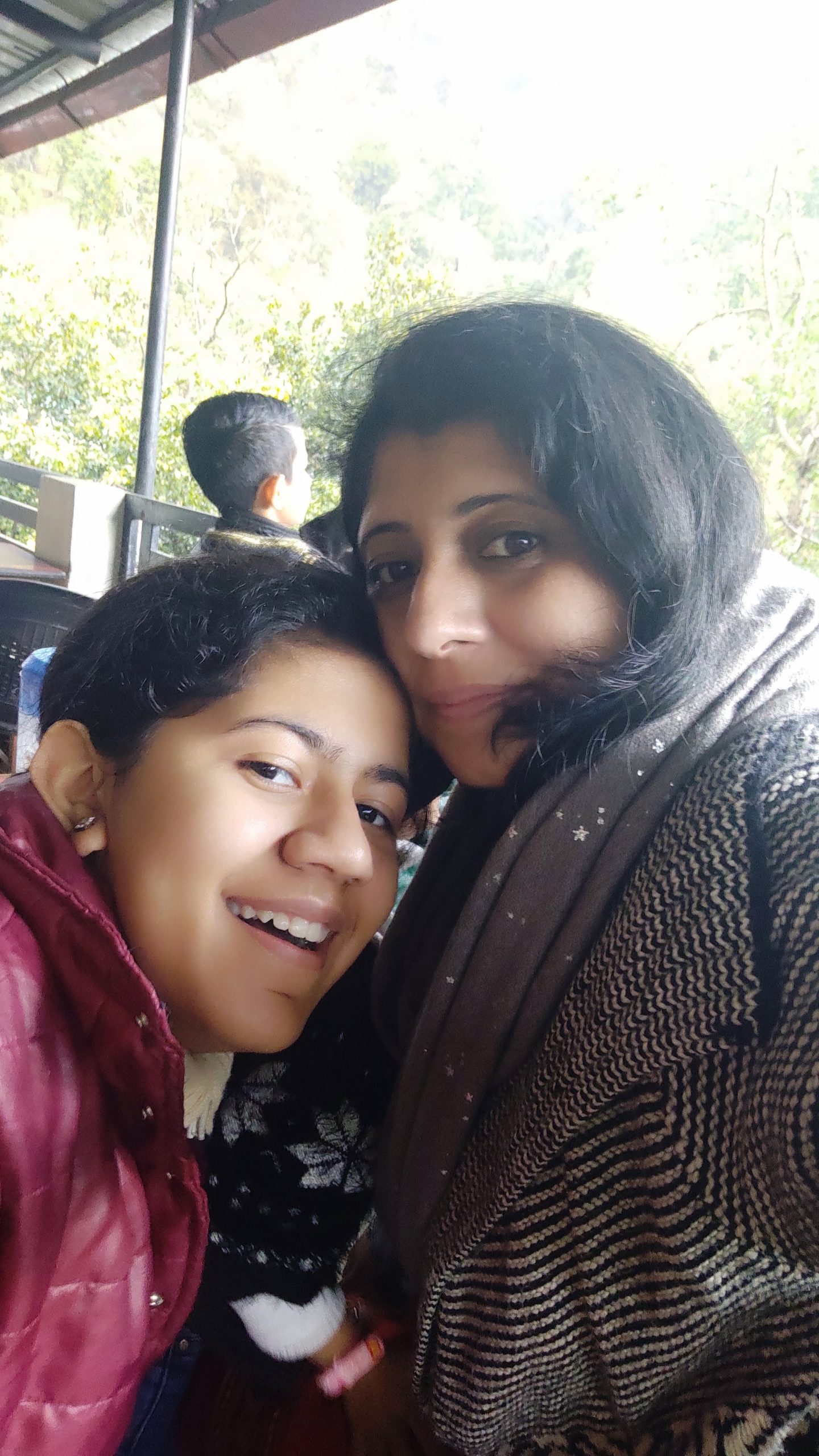
Rashi Seth: Happy children end up growing into happy adults. No one nourishes in stress.
For Rashi Seth, a single mother and an entrepreneur who runs her lingerie store in Delhi and consults women about what to wear, the responsibility of raising Kahini, her 13-year-old daughter since she was two, has been made easier with her mother at home.
“If I did not have my mother to co-parent, I think it would have been a lot harder. Most of the single women are completely alone in the process of raising a child,” she says.
Suffering physical abuse, verbal abuse, and always getting into arguments with her husband, took a toll on Rashi’s mental health, and she went through a bout of acute depression. Finally, when the differences became irreconcilable, she filed for divorce in 2012. In February 2019 the divorce finally came through, and Rashi got sole custody of her daughter the following year, although she is now fighting for maintenance from her husband.
“Many women go through these dilemmas. Should we walk out of a bad marriage or not for our children? It’s always better to choose tranquillity over discontentment. When I ask my daughter how she feels, there are no complaints. Please don’t make children a reason to stay in bad marriages,” she says.
Nirupama S: Thanks to my daughter, I have become a better version of myself
Fortunately, Nirupama, a nutritionist, corporate wellness coach and fitness consultant based out of Pune, faces no such concerns because when she went through a divorce five years ago, her daughter was already 16 and well-adjusted. Today, her daughter is a 21-year-old college graduate.
“My daughter is already independent, and I get more time to focus on my work. We are happy and have the freedom to live our lives without any additional terms and conditions. During my marriage, I was a person with low confidence and self-esteem, but I am a better version of myself due to my daughter,” she says.
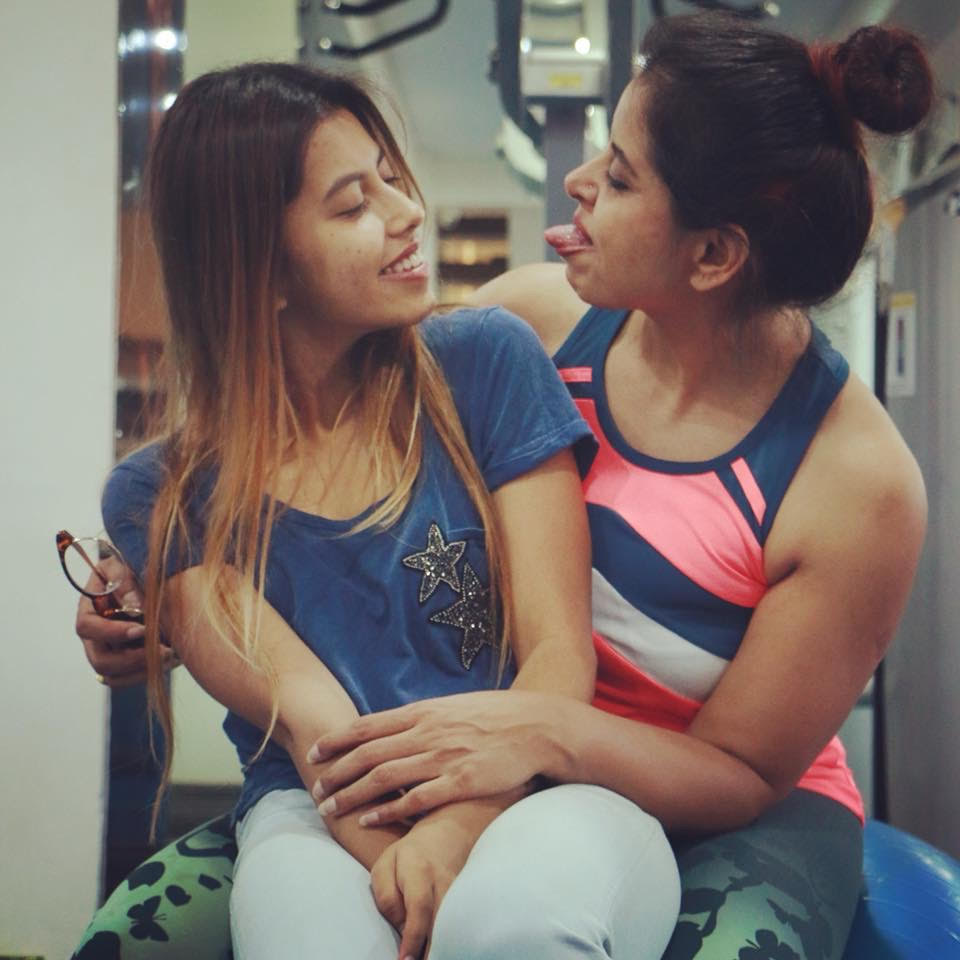
‘Log Kya Kahenge’ (What Will People Say?)
Pooja: I accepted my new realities as a single woman raising a child.
When Pooja separated from her husband and left with Priyamvada, she did suffer socially for those choices. Leaving a marriage isn’t still seen as very acceptable in India, and the toughest battles are closer to home. The most criticism she received about her decision was from her mother. A few friends also start behaving very differently since she didn’t fit into the roles society has defined for her.
“A lot of social stigmas are attached to divorce and single motherhood. For every challenge in life, whether it’s personal or social, the first stage is acceptance. Following this, I went into a mindset which believed that I am not here to live up to anybody’s expectations of me. My ex-husband and I made a decision which we thought was right for us and chose to live with dignity,” recalls Pooja.
She has encountered pressures of getting remarried and dated other men after her divorce. After her husband remarried, her daughter understood that her parents could have other partners once they had divorced.
“In larger social circles, it’s okay for a man to remarry after a divorce, but for a woman, the child has to be the priority. Those are the hypocritical differences that exist for men and women who want to remarry. I have no qualms about remarrying as and when I find a man who I would like to spend the rest of my life with. Priyamvada would be a part of that life,” she says.
Rashi: Judgements about your singlehood from other friends and relatives aren’t said openly to your face. It’s very subtle.
For Rashi, the situation wasn’t too different. Despite their best intentions, she believes family members and peers who have a stake in the marriage don’t often offer the best advice in these situations. Their answer to marital discord is ‘make a compromise’ or ‘this happens to everyone’ and ‘try to please your husband and make peace’. All she wanted was to raise her daughter in a harmonious environment.
“You’re invited to far fewer parties or get-togethers as compared to the time you were married. Social outcasting is very subtle, but you understand. Single males aren’t subjected to this sort of outcasting. You can see people’s eyes judging you. They will pose questions like ‘where is your husband’. If I respond that I am single, there is an awkward silence,” she says.
And her decision to become a single mother also affected her professional career. While working at different companies, she was always being judged at offices. “In my last job in Delhi, my boss, a woman herself, would often bring up situations where I would have to choose between family or work. This is a nonsensical stereotype of single and separated parents like us. That sparked my desire to find a work environment conducive to my needs. Besides my daughter, I have an ageing mother. I wanted to work in an environment where I could do justice to my domestic responsibilities and achieve professional satisfaction as well,” she recalls.
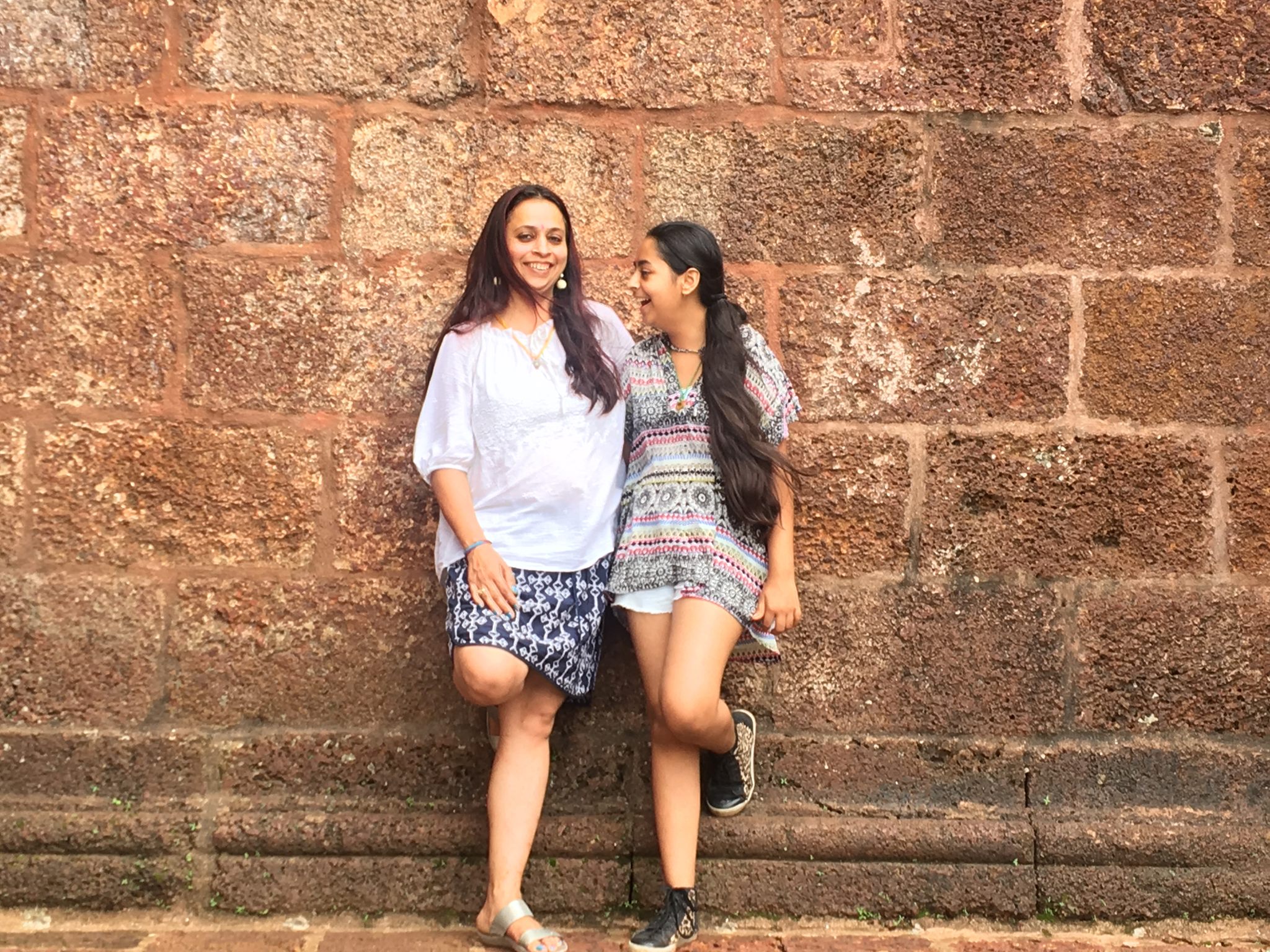
Nirupama: They would ask, ‘Log kya kahenge’ or pass judgements like ‘There is something wrong with her’.
Nirupama had given up her job while married, and there were multiple questions about her choice to divorce and raise her teenage daughter, single-handedly.
“I suffered socially for my choice. It was all about my family and friends. There was tremendous pressure from them to make this marriage work. These were some of the things I kept hearing when I divorced my husband. I was about to turn 40 when I got divorced and had left a career after my marriage. There were questions about what I was going to do with my life. There were questions about financial support, but very little about the emotional support I needed,” she recalls.
Instead, she took on the burden of convincing her friends and family, and they finally understood. Eventually, their support gave her more confidence to follow through.

Daughters To The Rescue
Pooja: As a parent, whatever you preach, you have to practice
“For instance, I believe in gender equality. When my father passed away, for example, I chose to perform his last rites myself. Both my father and I wanted it that way. Still, Priyamvada became a secondary motivation for it because I realised that if I don’t push this equality at home or where it matters, no matter how many feminist textbooks I teach her, it will not matter anymore. It does get emotionally taxing at times. As my late father would say, if you raise a democratic child, often the first rebellion is against you,” she adds.
Rashi: Kahini has grown up faster than most, seen the inside of a courtroom, and supported me by saying things like ‘I understand’.
It’s tough situations that often compel children to grow up much faster. Rashi believes her child is well-adjusted, happy and more mature than many girls her age.
She recalls a time when there was constant discord with her ex-husband.
“Now, there is always happiness and peace at home. In court, the judge once told me that I had raised a well-adjusted and beautiful child, who is respectful of her father despite the odds; hasn’t been brainwashed into saying anything, knows what she wants and has a mind of her own. That was a big win for me,” she recalls.
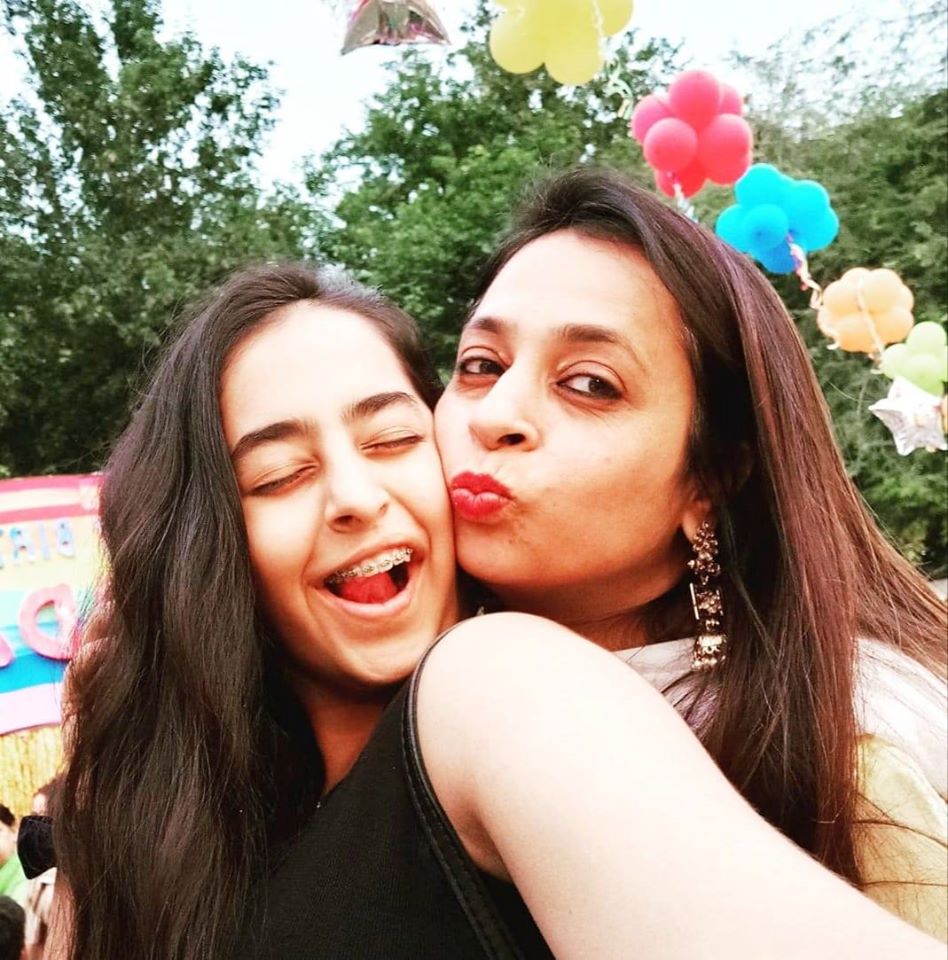
Nirupama: It was my daughter who encouraged me to live life on my terms from the start. She told me to stop tolerating a bad marriage.
“With her backing, I had the confidence to take the path towards single motherhood. I will always thank her for supporting me. She made so many adjustments while I was transitioning out of my marriage and finding my feet again professionally. She never demanded anything from me. Moreover, she handled this entire transition with so much maturity in communicating with her school friends about her changing living situation. Her position has been that my mother is doing this so we can live a happier life together,” says Nirupama.
After all, the reason why these women chose this steep path was that they wanted to find happiness within themselves and for their children. For the most part, they succeeded.
(Edited by Saiqua Sultan)
Like this story? Or have something to share? Write to us: [email protected], or connect with us on Facebook and Twitter.
If you found our stories insightful, informative, or even just enjoyable, we invite you to consider making a voluntary payment to support the work we do at The Better India. Your contribution helps us continue producing quality content that educates, inspires, and drives positive change.
Choose one of the payment options below for your contribution-
By paying for the stories you value, you directly contribute to sustaining our efforts focused on making a difference in the world. Together, let’s ensure that impactful stories continue to be told and shared, enriching lives and communities alike.
Thank you for your support. Here are some frequently asked questions you might find helpful to know why you are contributing?


This story made me
-
97
-
121
-
89
-
167











